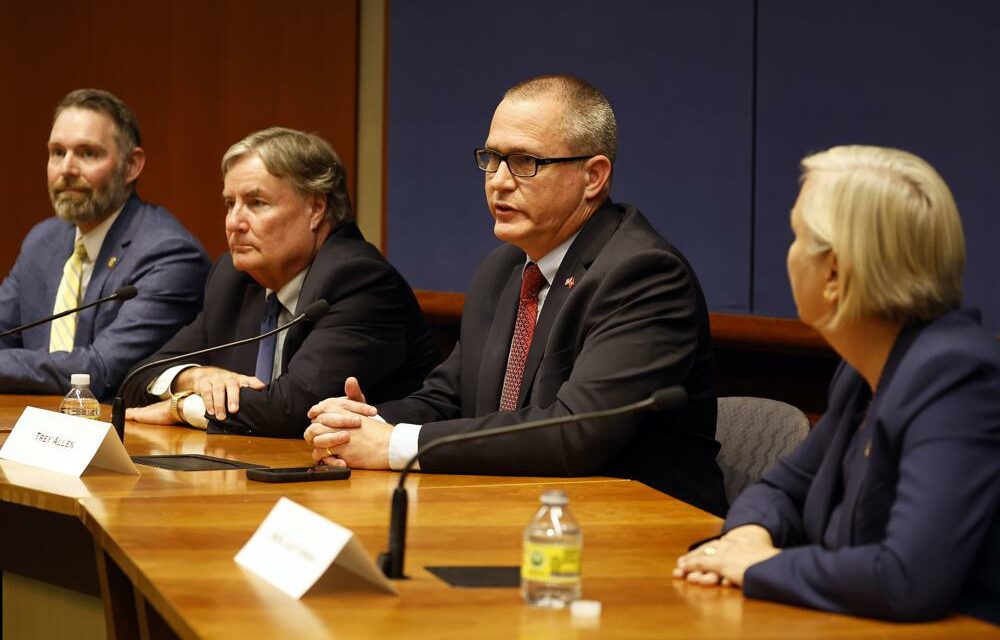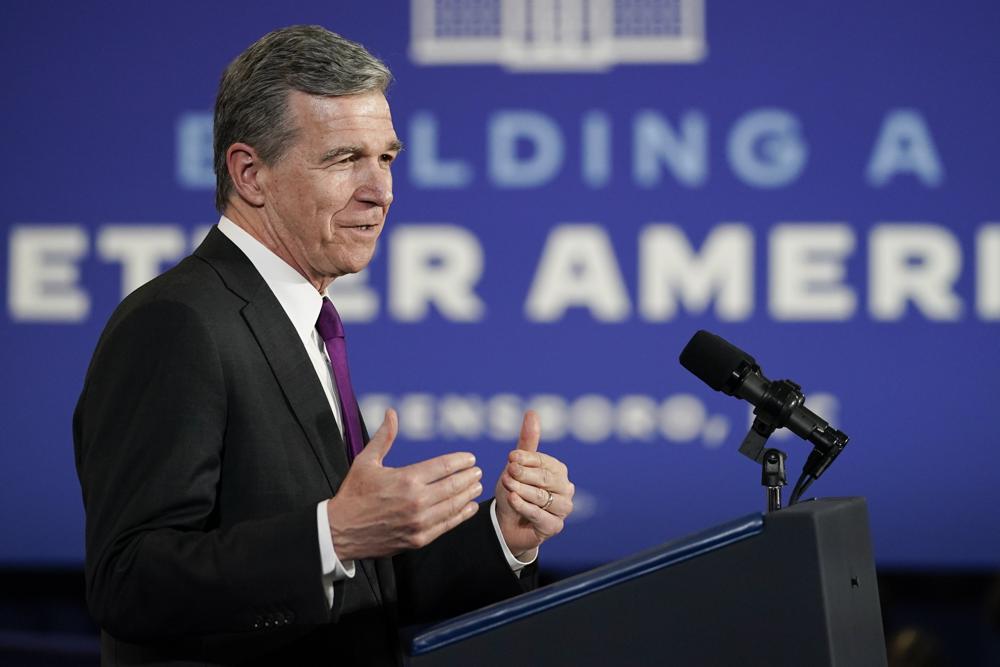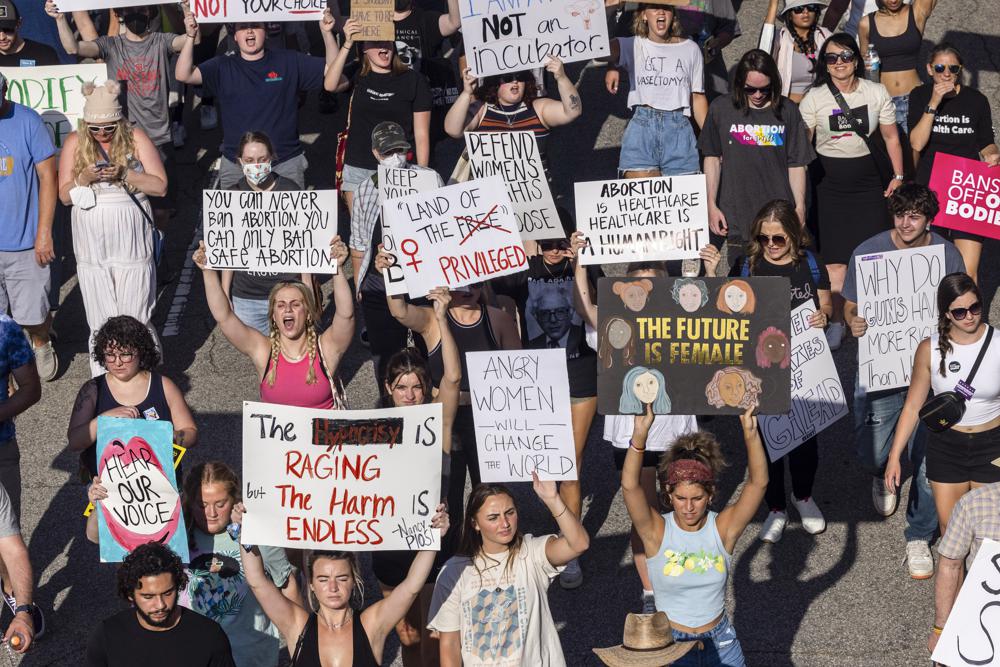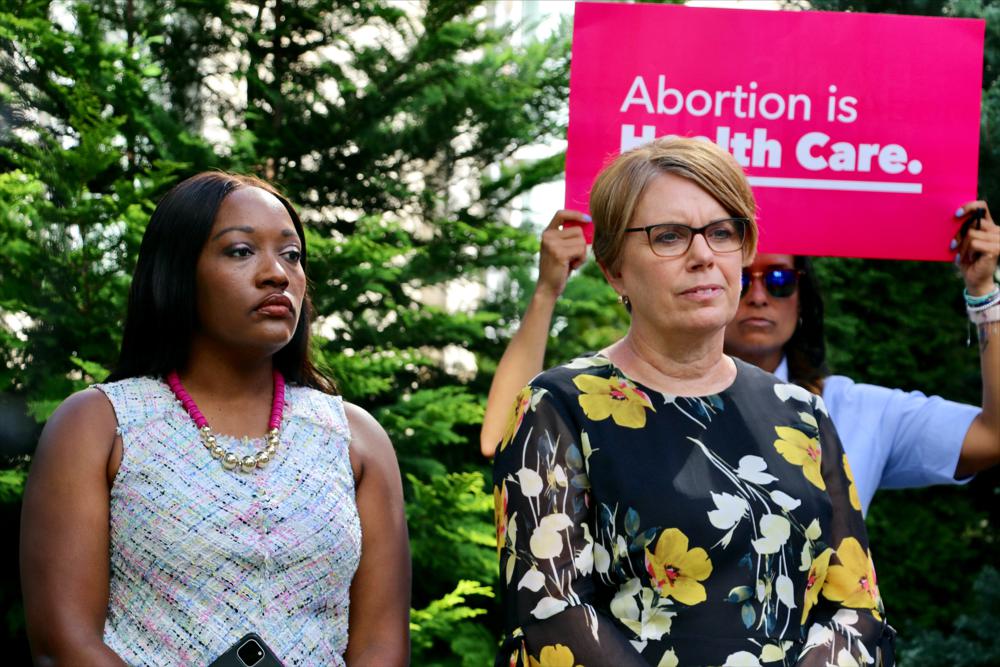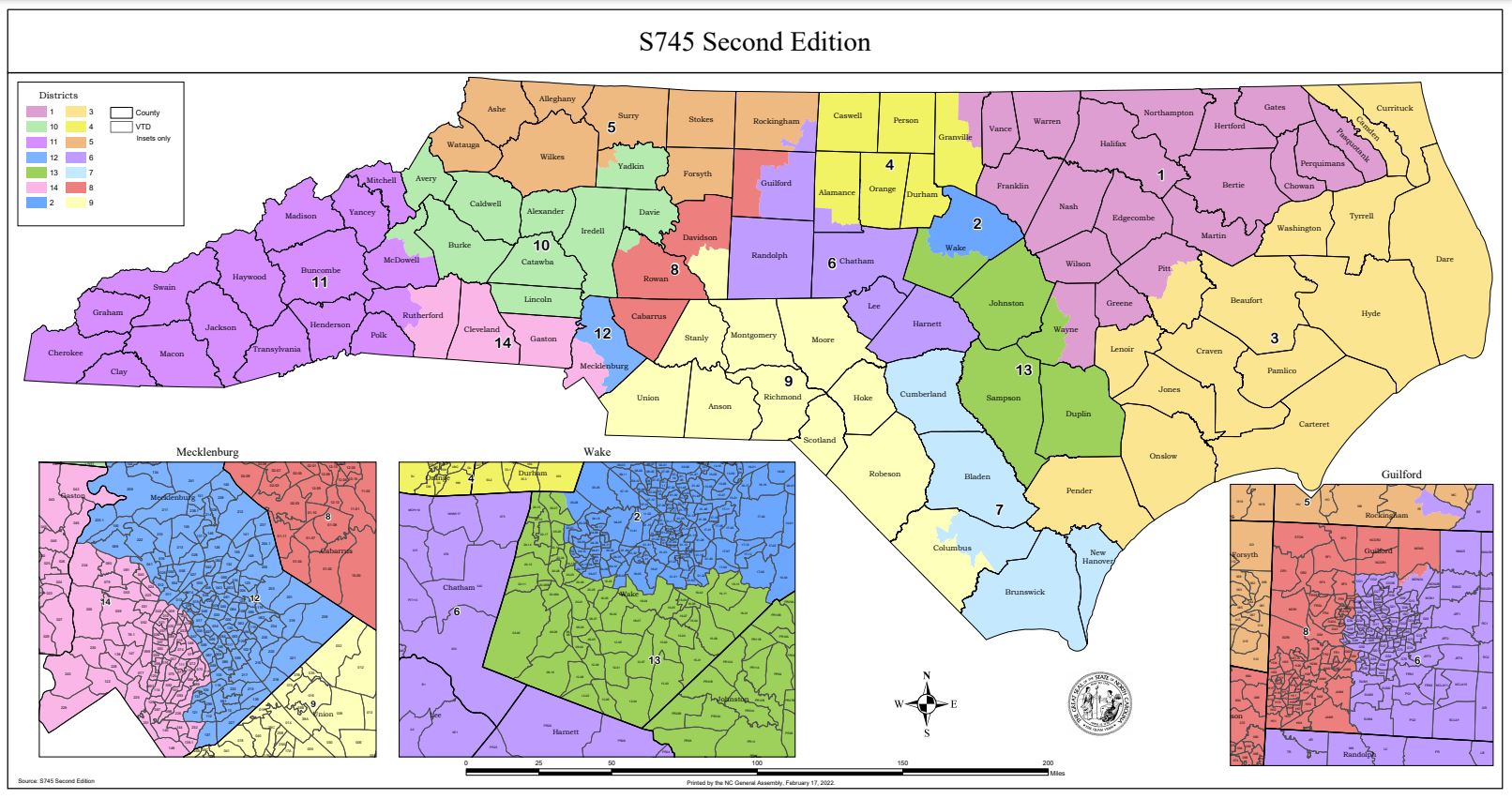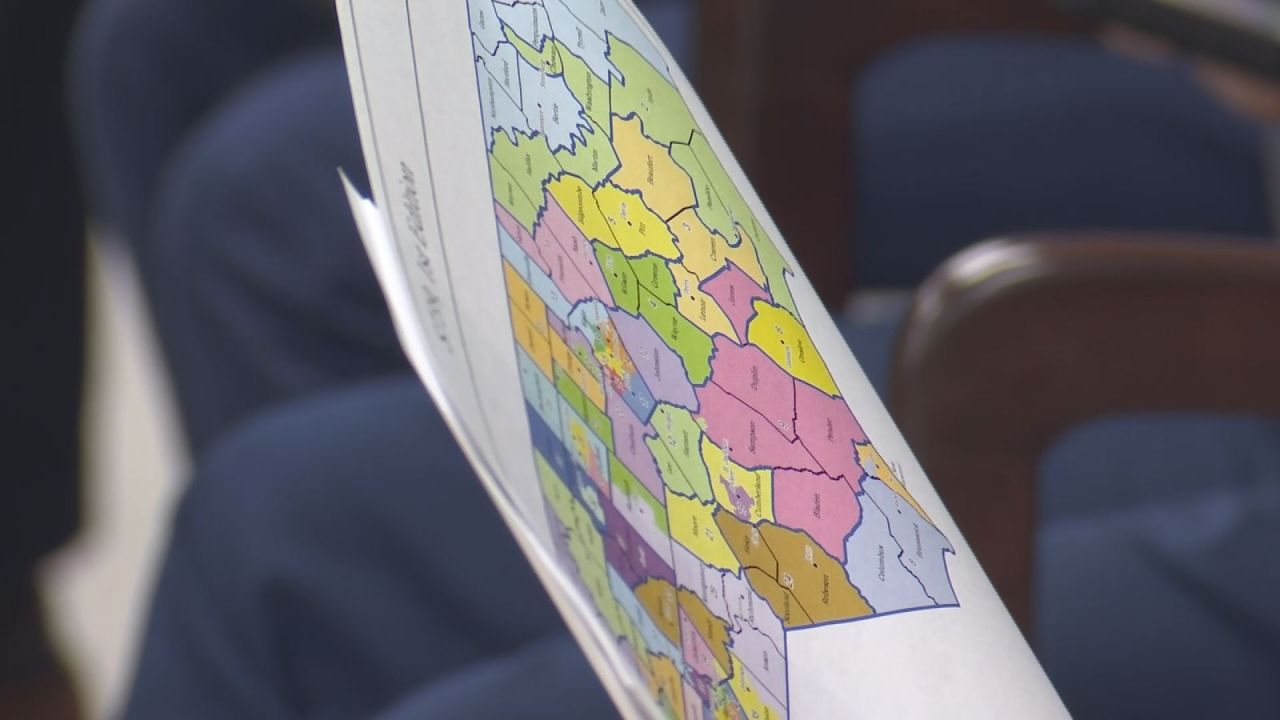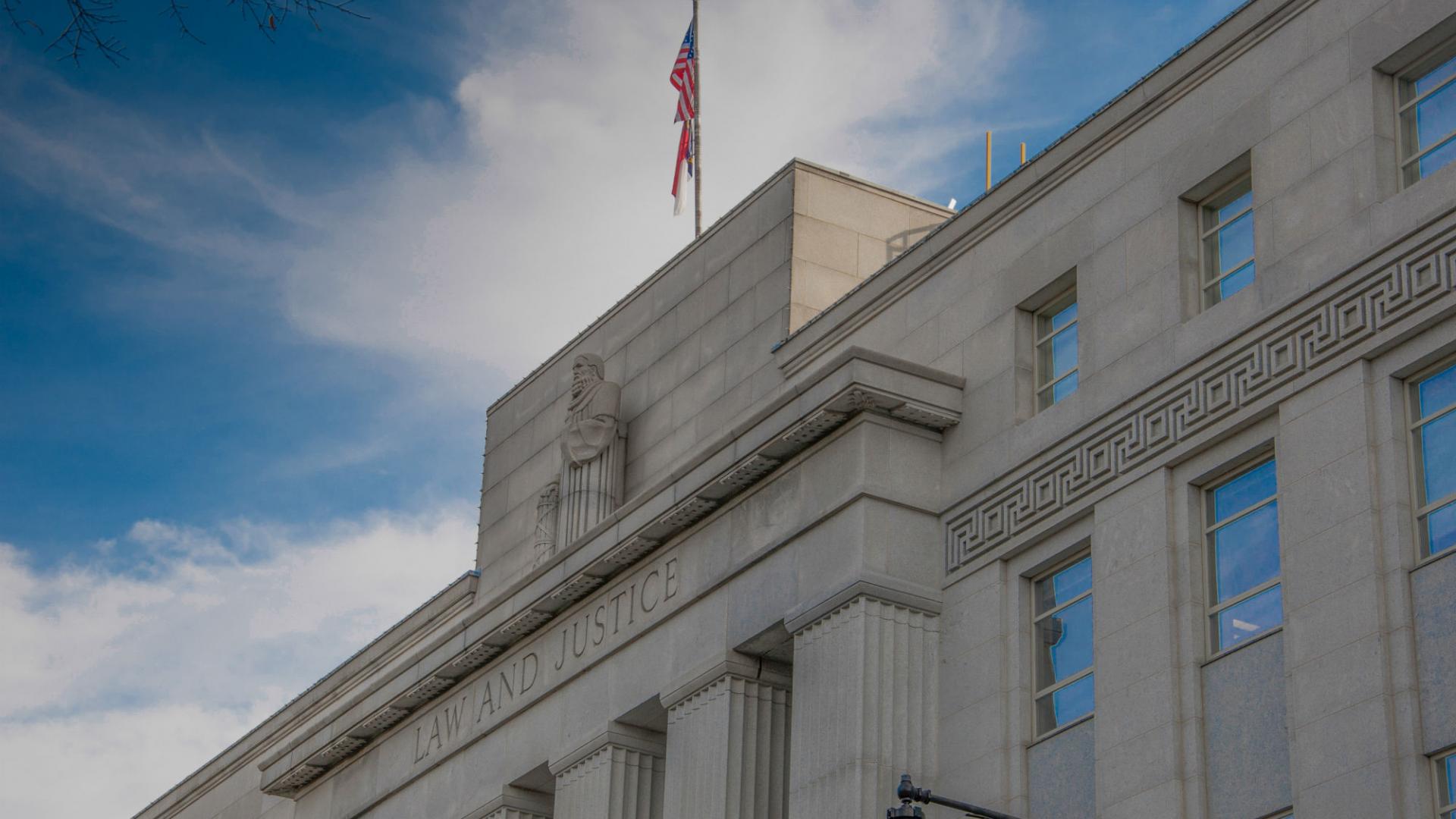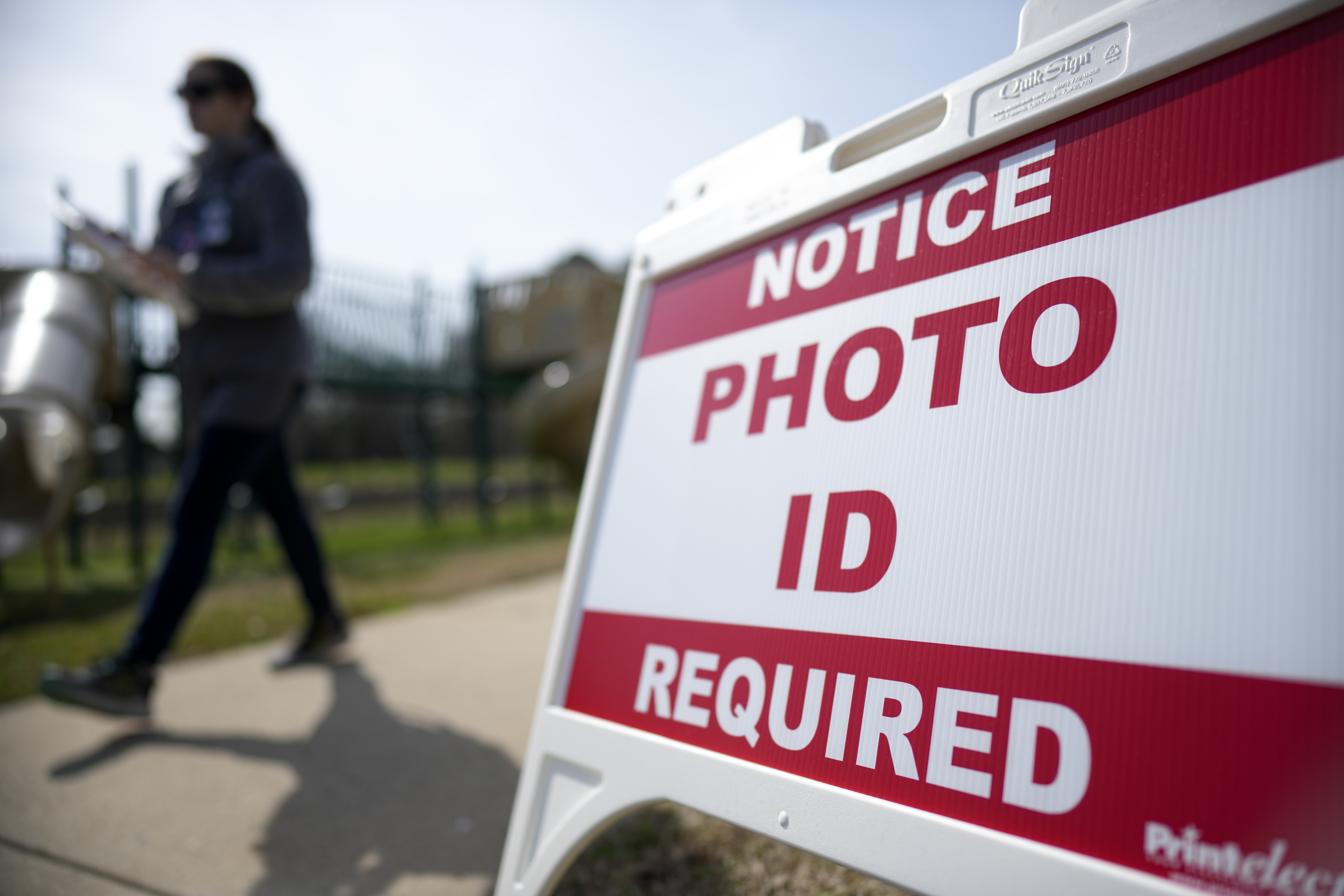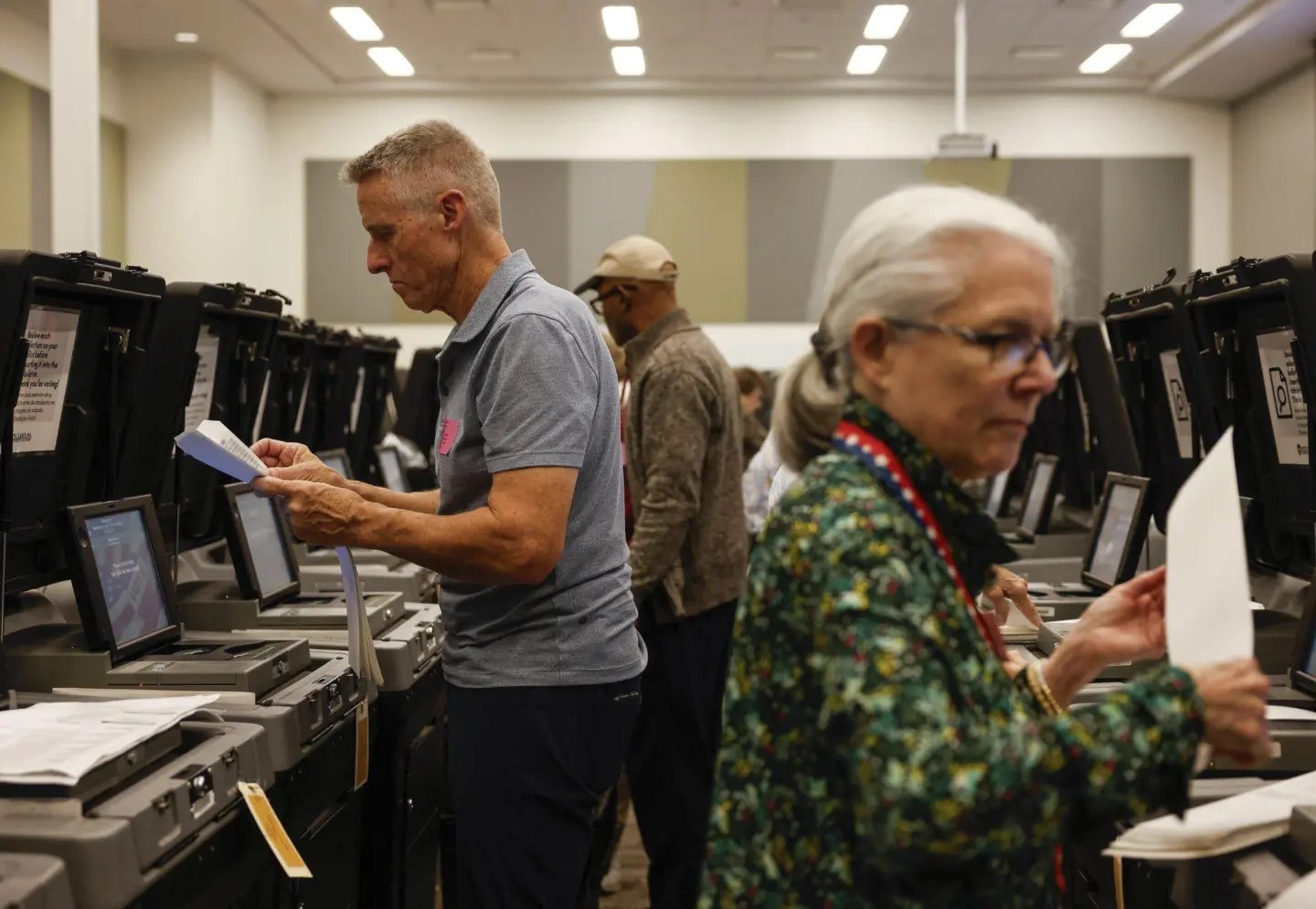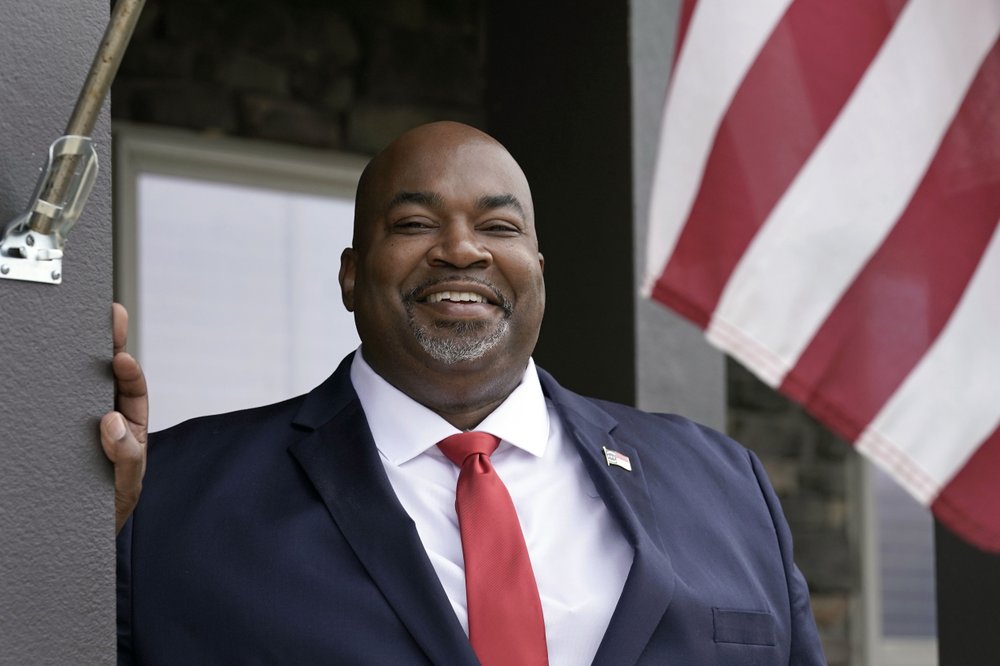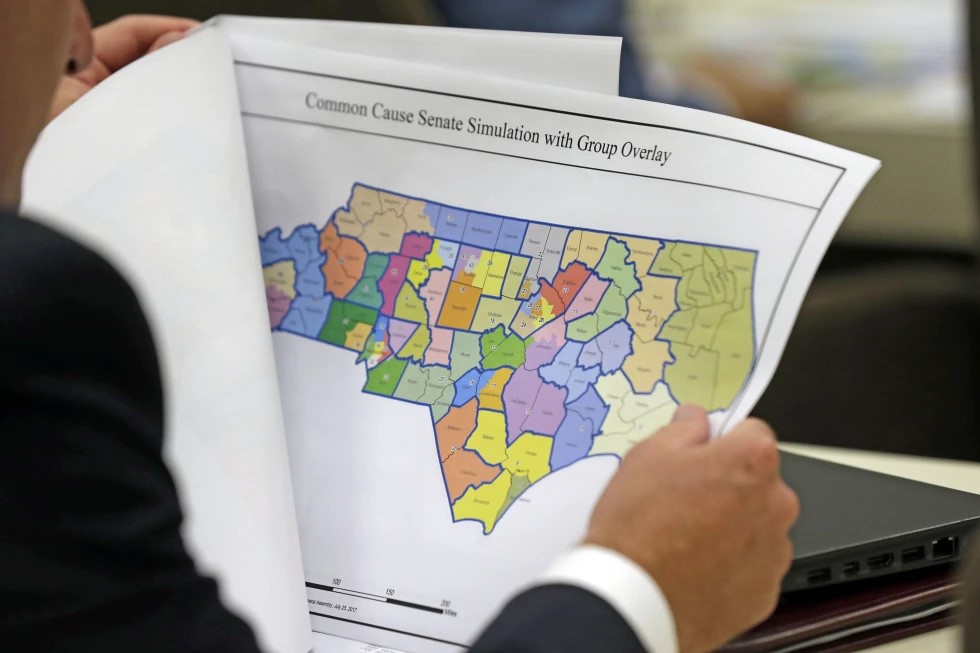Written by HANNAH SCHOENBAUM
Two competitive races for North Carolina Supreme Court seats that have largely flown under the radar will determine the partisan makeup of the state’s highest court and lay the groundwork for upcoming legal battles over significant policy matters.
Democrats currently hold a slim 4-3 majority on the panel. But with two Democrat-held seats up for election this year, Republicans only needed to win one to flip the majority in their favor for the first time since 2016.
Democratic Associate Justice Sam Ervin IV is running for his second 8-year term against Republican Trey Allen, the general counsel for the state court system. And Court of Appeals Judges Richard Dietz, a Republican, and Lucy Inman, a Democrat, are running to succeed retiring Democratic Associate Justice Robin Hudson. A Republican victory would give the party a majority for several years, as the next two seats up for reelection are also held by Democrats.

This combo of images provided the North Carolina Administrative Office of the Courts, left, and the Trey Allen Campaign, shows Associate Justice Sam Ervin IV, left, a Democrat and Trey Allen, currently general counsel for the state court system. The pair are running against each other running for North Carolina Supreme Court. (North Carolina Administrative Office of the Courts, left; Trey Allen Campaign right, via AP, File)
The judicial elections come in the final months of a tumultuous two-year court term distinguished by several split decisions favoring the Democratic majority. These high-profile rulings, some involving redistricting, criminal justice and voter ID laws, have drawn criticism from both sides that the judiciary has become too politicized. Now, all four candidates are running on a similar platform: a vow to keep their personal politics from interfering with their rulings.
North Carolina introduced partisan state supreme court elections following the 2016 cycle after the Republican-controlled General Assembly passed legislation to list the judicial candidates’ party affiliations on the ballot. Lawmakers introduced the bill shortly after Democrats gained a majority on the high court that November.
Democrats have warned that Republican control of the court could push state law to the right on a number of key issues, including abortion access, redistricting and gun control. It would also open the door for Republicans to draw a more politically beneficial congressional map after this election cycle and create a new avenue to weaken Democratic Gov. Roy Cooper’s policy initiatives.
While Democrats have been able to quash many GOP bills in recent years, mainly with the threat or application of Cooper’s veto, that power now hangs in the balance as Republicans aim to pick up the few additional seats they need for a supermajority in the General Assembly.
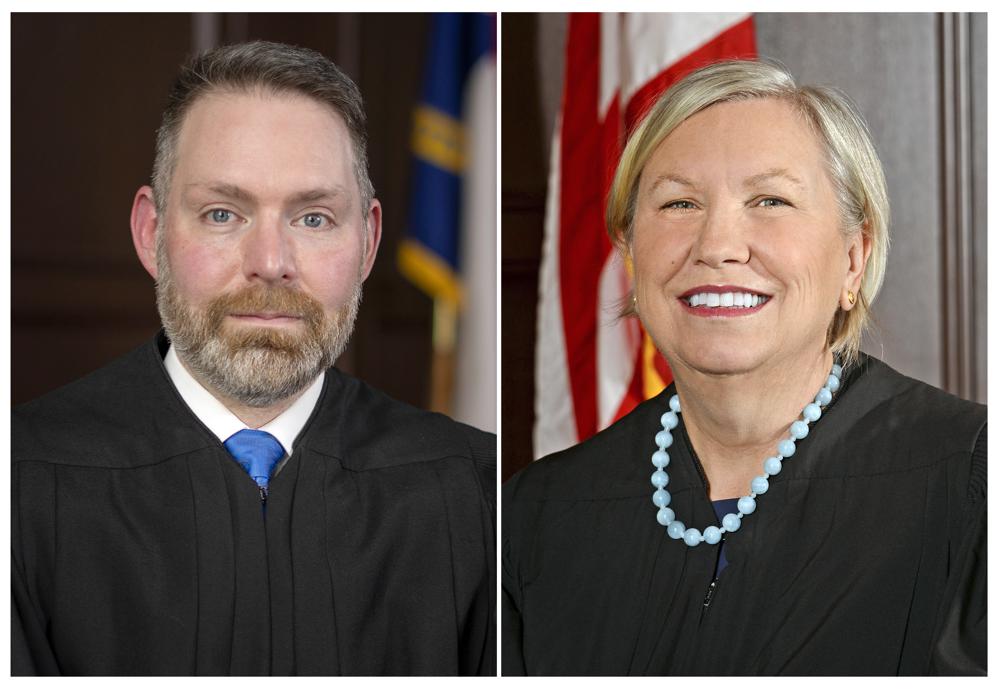
This combo of images provided by the North Carolina Court of Appeals, show Judges Richard Dietz and Lucy Inman. The stakes in elections for a pair of North Carolina Supreme Court seats this fall are super-sized, as the outcomes could flip the court’s partisan makeup during a period of polarization. Court of Appeals Judges Richard Dietz and Lucy Inman are looking to be elevated to the state’s highest court to succeed retiring Associate Justice Robin Hudson. Inman is a registered Democrat, while Dietz is a Republican. (North Carolina Court of Appeals via AP)
Voters in 32 states are casting ballots this year in state supreme court contests, which have become spending targets for interest groups nationwide. North Carolina — one of the most closely watched states due to its historically close partisan divide — has drawn millions in outside spending for the judicial races since the U.S. Supreme Court ruled in June to let states decide the legality of abortion.
Abortions are legal in the Tar Heel state until 20 weeks of pregnancy, as of an Aug. 17 federal court ruling, with narrow exceptions for medical emergencies that threaten the life of the pregnant person. North Carolina remains one of the few abortion access points in the Southeast as its neighboring states slash abortion protections. Republican legislative leaders have said they plan to consider further abortion restrictions in 2023.
While none of the candidates have directly stated their positions on abortion, Ervin and Inman have received endorsements from abortion rights proponents, including Planned Parenthood Votes! South Atlantic.
Photo via AP Photo/Karl DeBlaker.

